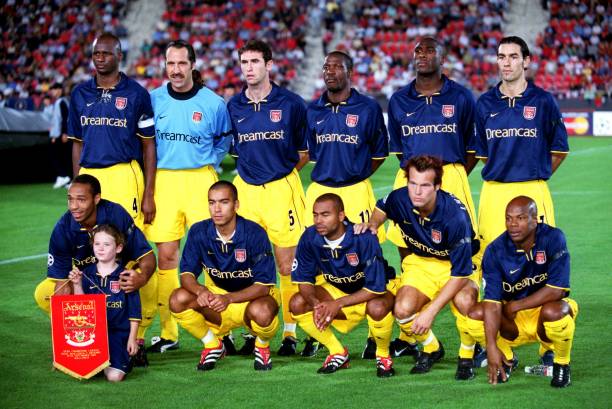Arsenal’s performance in the second leg of the Carabao Cup semifinal against Chelsea last night was nothing short of commanding. While many observers praised Chelsea for putting up a fight, Sky Sports pundit Paul Merson was quick to call out the Blues for failing to do enough against a superior Gunners side. As an avid…Continue reading Arsenal Outshine Chelsea in Semifinal Clash
Arsenal’s Edge in Chelsea Showdown
As the Carabao Cup semi-finals heat up, Arsenal fans are buzzing with anticipation for the second leg against Chelsea on Tuesday night. The Gunners carry a slender 3-2 advantage into this crucial clash at Stamford Bridge, a lead secured in the first leg at the Emirates. With a spot at Wembley on the line, Mikel…Continue reading Arsenal’s Edge in Chelsea Showdown
Sterling Exits Chelsea: What’s Next?
Raheem Sterling’s departure from Chelsea has sent ripples through the Premier League, marking the end of a tumultuous chapter for the former England international. After more than 18 months of uncertainty, the 31-year-old forward has left Stamford Bridge by mutual consent, as confirmed by the club on Wednesday. Sterling, who joined Chelsea from Manchester City…Continue reading Sterling Exits Chelsea: What’s Next?
Mbeumo Stuns Arsenal at Emirates
The Emirates Stadium was buzzing with tension and drama today as Arsenal faced off against Manchester United in a thrilling Premier League encounter. The match, which ended level at the break, showcased moments of brilliance and glaring errors, with Manchester United’s Bryan Mbeumo emerging as the standout performer. As a seasoned follower of the game,…Continue reading Mbeumo Stuns Arsenal at Emirates
Arsenal Face United Without Casemiro
As the Premier League season heats up, all eyes are on the upcoming clash between Arsenal and Manchester United at the Emirates Stadium this Sunday. The Gunners, currently leading the league, are set to face a United side grappling with significant changes. The biggest news ahead of this fixture is the confirmed departure of Casemiro,…Continue reading Arsenal Face United Without Casemiro
Arsenal’s Champions League Dominance Continues
Arsenal Football Club is once again making waves in the UEFA Champions League, solidifying their position as one of the top contenders in the 2025-2026 season. With the competition resuming after its Christmas hiatus, the Gunners are showcasing their strength, particularly as they sit atop the league phase table with an impressive points tally. Their…Continue reading Arsenal’s Champions League Dominance Continues
Arsenal Gears Up for Liverpool
In a week bustling with Premier League actions and fervent preparations, Arsenal Football Club has turned its focus towards a highly anticipated showdown with Liverpool. As the football community braces for a clash that could have significant implications on the league standings, Arsenal’s latest training session insights reveal a team in high spirits and rigorous…Continue reading Arsenal Gears Up for Liverpool
Edu’s Arsenal Exit Stirs Debate
In a move that sent shockwaves through the Arsenal community, Edu’s departure from the club has become a focal point of discussion among fans and pundits alike. The Brazilian, who had been instrumental in shaping the direction of the club, made headlines at the end of 2024 when he unexpectedly left his position, just weeks…Continue reading Edu’s Arsenal Exit Stirs Debate
Arsenal’s January Challenges
Arsenal’s Road Ahead: A January Overview As the football world turns its eyes towards the unfolding narratives in the January leg of the Premier League, Arsenal finds itself at a crucial juncture, balancing aspirations with the stark realities of squad fitness and market opportunities. The narrative of Arsenal’s season is being shaped by factors both…Continue reading Arsenal’s January Challenges
Odegaard Triumphs Over Injury
Odegaard’s Resilient Comeback Amid a season fraught with challenges, Arsenal’s captain Martin Odegaard has emerged as a beacon of resilience. The Norwegian midfielder, who has grappled with two shoulder injuries and a knee issue, is finally hitting his stride, offering the Gunners a much-needed boost. Arsenal’s manager, Mikel Arteta, has lauded Odegaard’s return to form,…Continue reading Odegaard Triumphs Over Injury









